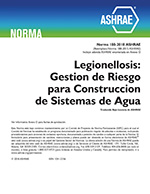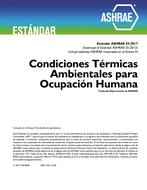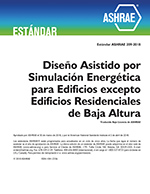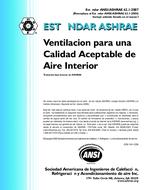Description
Four studies in the area of thermal comfort are reviewed. In the first study, designed to examine the effect. of the sleeping environment. on sleep patterns, electroencephalograms were measured on six men and six women while sleeping at 50°F (10.0°C), 70°F (21.1°C), and 90°F (32.2°C) after sleeping the previous night at 70°F (21.1°C) (control temperature). The results showed that the temperature of the sleeping environment did not affect the amount of time spent in the various sleep stages.
In the second study, thermal comfort was examined at 78°F (25.6°C) while 192 subjects sat in office chairs representing  4 different styles with each model having either cloth or vinyl upholstery. The results showed that a significantly higher degree of thermal comfort was experienced in the cloth-covered chairs than in those upholstered with vinyl.
In the third study, designed to study the effects of occupant density on thermal comfort, 24 individuals were exposed to 78°F (25.6°C) either individually, in groups of two (one male and one female), or in groups of four (two males and two females). The results showed that thermal comfort was greater among the women than among the men when exposed alone or in groups consisting of four individuals; however, men reported a greater degree of thermal comfort than women when they were with a woman in a two-person group.
In the fourth study, which examined the effects of lighting on thermal comfort, 144 subjects were exposed to 68°F (20°C), 78°F (25.6°C), and 89°F (31.7°C) in an environmental chamber that. was lighted with high-pressure sodium lamps, daylight fluorescent, soft white fluorescent, and ambient valence lighting (control). The results showed that the thermal comfort response was not affected by the lighting. However, the study represented the first time that the nine-category thermal sensation scale, the six-adjective pair semantic differential scale for measuring thermal comfort, and the temperature preference scale were used together, and the results obtained with these measures offer a new dimension to thermal comfort research.
Citation: Symposium, ASHRAE Transactions, 1983, vol. 89, pt. 2B, Washington, D.C.
Product Details
- Published:
- 1983
- Number of Pages:
- 13
- File Size:
- 1 file , 1.3 MB
- Product Code(s):
- D-DC-83-11-3




